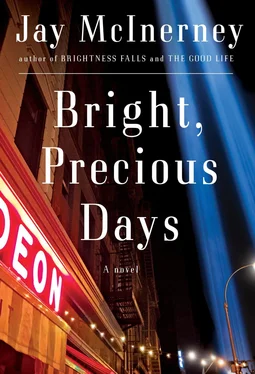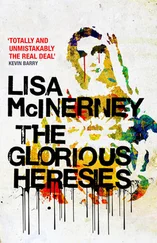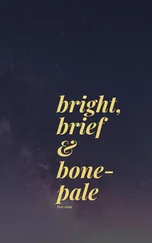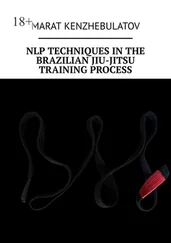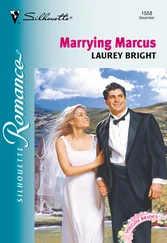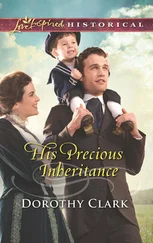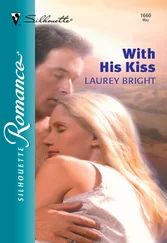Russell realized he was holding his breath while awaiting the verdict. Tom smacked his lips as he lowered the glass back to the table and nodded curtly.
The sommelier poured half an inch into Russell’s glass and returned to give Tom a few more milliliters. It tasted like honey, except that it wasn’t actually sweet. “Wowsah!”
“Yeah,” said Tom. He took another sip before leaning back in his chair and cracking his knuckles. “So tell me, weren’t you even a little bit suspicious about that son of a bitch’s story? I mean, the name alone’s a red flag. Like, who’s he in cahoots with ?”
“Eventually, yes, I became suspicious. But I have to say he was very convincing, and I was hardly the only one drawn in. The New Yorker was within a day or two of publishing an excerpt, and all the networks were fighting for an interview.”
Tom shook his head and swallowed the rest of the wine. “Don’t you have some kind of due-diligence process? You didn’t ever ask yourself, ‘How come the big corporate publishers aren’t outbidding me on this?’ ”
Again, Russell shrugged. “There was plenty of interest.”
“But not bids?”
“I preempted.”
Tom sighed.
Even before the appetizers, Russell was going to have to eat some humble pie. He was on Tom’s turf, in the role of supplicant, hoping that Corrine’s best friend’s husband could help him out of the financial sinkhole into which he was being sucked. Already struggling before the Kohout debacle, he was now desperate. Kip Taylor, citing liquidity issues, refused to invest another nickel in McCane, Slade. Right now, Russell had about three weeks’ worth of cash on hand.
Much as he wanted to despise Tom’s easy air of privilege, Russell always felt a little beta in Tom’s distinctly alpha presence, as he had at Brown with the New York and Boston preppies, the boys with BMWs and ancestral summer homes in Nantucket, the Vineyard or the Hamptons. Tom had gone to Princeton, but it was the same hierarchy. Guys like him set the tone at the Ivy League campuses, arriving with hereditary knowledge that the midwesterners and the scholarship students like Russell yearned to acquire. They had the worn, faded rugby shirts, the Bean boots, the Barbour jackets and the phone numbers of girls at Smith and Holyoke. They knew which professors and which courses to avoid, knowledge passed down by their siblings and upperclassmen at Andover or St. Paul’s. Even though you wanted to hate them, you couldn’t help envying their careless ease, their sense of belonging and dominance. Corrine had been one of them, sort of, which was part of her appeal, but she’d been more than that, too; she’d had a kind of nerdy earnestness, which made her more approachable than the others, especially for someone like Russell, who’d been supremely confident in his intellect, if not in his wardrobe.
Born on Park Avenue, schooled at St. Bernard’s and Groton, Tom had pulled himself up by his grandfather’s suspenders. That august gentleman had been a cofounder of the investment bank Reynes, McCabe and Simms, and Tom was the beneficiary of the income of one-third of his fortune, held in trust, which would have allowed him the leisure to do nothing at all, but Tom had gone to work for a rival firm and added many millions more to the ancestral bounty. An übermensch in a bespoke suit, he was current court tennis champion at the Racquet Club, four-time doubles grass-court tennis champion at the Meadow Club in Southampton and three-time club champion at Shinnecock Hills.
A waiter approached, holding a bulbous wineglass with a long, delicate stem — wherein a shallow pool of crimson shimmered — reverently setting it on the table in front of Tom. “Your friends wanted you to taste this,” he said, nodding toward a table at the other side of the room where four suits hoisted their goblets in salute.
Tom lifted the glass and swirled it, the ruby liquid surging up the sides of the bowl, sniffed and then tilted the huge bowl toward his lips, inhaling a sip and seeming to chew on it before setting the glass back down. “You guys are a bunch of pedophiles,” he called out. “This wine’s a baby.”
Howls of indignation rose from the other table. “No way, man. This wine has tits,” one of them shouted.
“T and A in liquid form!” another testified
“I didn’t say I didn’t like it,” Tom bellowed. “I just said it was barely legal.”
“It’s a ’94 Harlan,” the tit man shouted.
“I rest my case — an eighth grader!” Tom raised his glass toward the group before resuming his study of the wine list. “Fucking guys, they’re from Goldman. They do some trading for us. They’re young, and still into the Napa cult Cabernets; it’s the gateway drug. They’re players, though, I’ll give them that. That bottle is like twenty-eight hundred dollars on the list.”
“Jesus Christ,” Russell said.
“Lacryma Christi, indeed,” Tom said. “Taste it. It’s actually pretty damn good, but I can’t tell them that.”
Russell raised the glass gingerly and took a small sip. Maybe it was just the power of suggestion, but he was inclined to agree with the guy who said the wine had tits. It was mouth-filling and round, like a breast that was too big for your mouth but nevertheless inspired you to try to inhale it.
Although there were several couples spread around the room, it had the air of a men’s club; instead of squash, the sport here was competitive oenophilia.
Tom waved impatiently at the sommelier. “Don, bring those guys a taste of the Montrachet and let’s start thinking about a red wine. How do we feel about the ’82 Cheval Blanc?”
“Tasted it last week, in fact, and it was singing.”
“Yes, but what the fuck was it singing, exactly?”
“I’d say it was singing Kanye’s ‘Good Life.’ ”
“Well, let’s crack it open, and give those Goldman boys a little taste.”
“Right away, Mr. Reynes.”
“That’s a serious bottle of wine,” Russell said, as the sommelier hurried away.
“Life’s too short to drink badly,” Tom said. “I mean, I don’t even touch the wine at those benefits the girls are always dragging us to. They always have top-shelf vodka and bat-piss wine. You’re a bit of a buff, aren’t you?”
“I’m an enthusiast. But I can’t honestly say I often get to drink First Growth Bordeaux.” Russell stated this fact as a disclaimer, partly in the hope of absolving himself of responsibility for the bill.
“Well, brace yourself. Because here comes a fucking brilliant example.”
As the sommelier cut the foil on the bottle, Tom said, “So what’s your number, Russell?”
Although they’d known each other for more than twenty years, this was only the second time they’d dined à deux. Russell had initiated this meeting more or less out of desperation.
“Honestly, I need five hundred K to make it through the year. Of course I’d give you some of my equity. But in the long run, I’d like to buy out my partner.”
“I take it the feeling is mutual.”
“Well, I think he’s lost some of his enthusiasm for literary publishing.”
“I bet. Although literature isn’t exactly what got you into this predicament. Your specialty is fiction, right?”
“I suppose so. That’s what we’re known for.”
“You’re an expert in that field — in that market.”
“Well, I don’t know that I’d say that. I do trust my judgment about what literature is, and my ability to recognize it, and we’ve got two editors I trust, as well, but I doubt anybody can predict with certainty what’s going to work with the public.” As soon as he said this, he wanted to retract it, not because it wasn’t true, but because he was asking Tom for money.
Читать дальше
